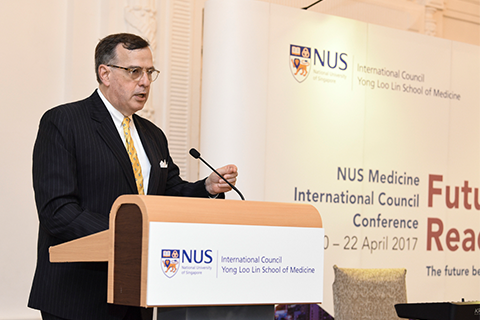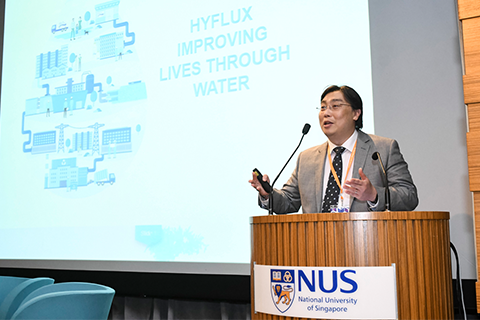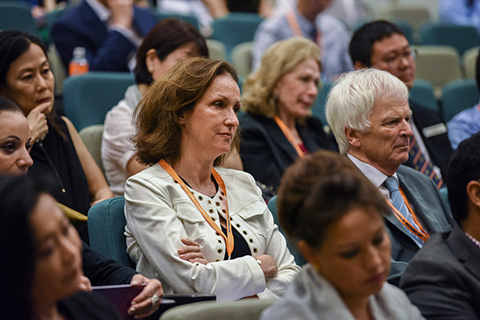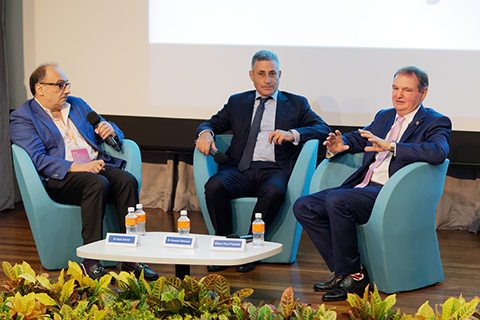NUS Medicine International Council welcomes global thought leaders to inaugural conference – Future-Ready Asia
Published: 25 Apr 2017
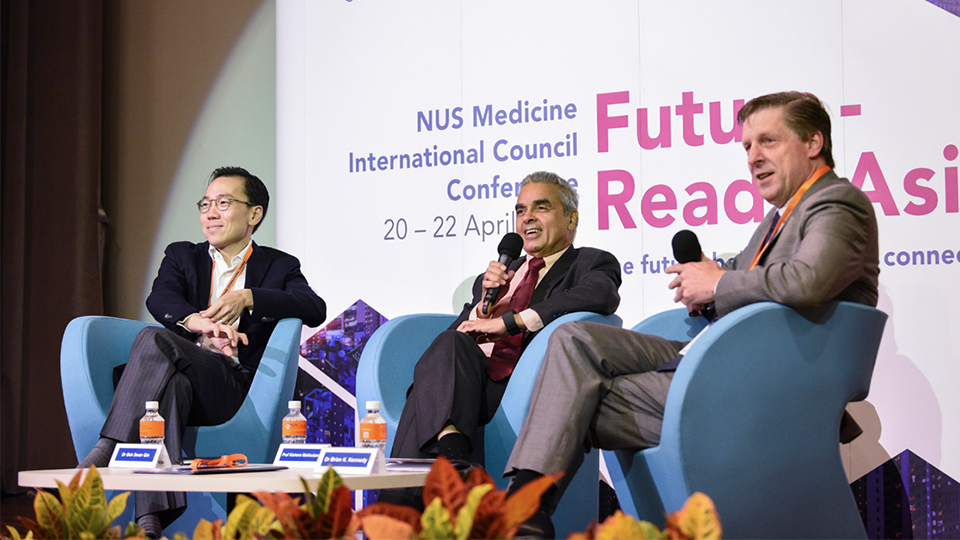
Leaders in biomedical sciences, government, energy and others, gather to exchange ideas on how Asia can meet the challenges ahead.
The NUS Medicine International Council (NIC) hosted its inaugural members’ meeting – Future-Ready Asia – from 20 to 22 April 2017. Attended by luminaries in medical research, government, policy, business, finance, energy, and other fields, the conference gathered experts and thought leaders from around the world to discuss the greatest challenges facing the region here in Singapore.
Chaired by former U.S. Ambassador to Singapore, Mr Frank Lavin, the three-day conference saw NIC members and invited speakers engage in dialogue over topics addressing the future of Asia, new frontiers in medicine, embracing disruptive innovation, mitigating the global silver tsunami, global politics, and tackling sustainability for the future. The inaugural conference took place against a background of concerns over the healthcare challenges brought about by rapidly ageing populations, the impacts of climate change, political and economic uncertainty in the U.S. and post-Brexit Europe and rising tensions in North Asia.
“We are living in very challenging times, from ageing populations, to slowing economies and growing cross-border threats to health,” said NIC Chairman Frank Lavin. “As a leading medical school in Asia and the world, NUS Medicine has established the NIC to invite global thought leaders, medical specialists, and business people to discuss issues relating not only to health but technology, politics, sustainability and the environment. Like it or not, issues are invariably interconnected and what affects one may affect others.”
Highlighting NUS Medicine’s role in spearheading the strategic conversations on Asia’s trajectory, Dr Yeoh Khay Guan, the Dean of NUS Medicine commented, “The practice of Medicine recognises that good population health outcomes are dependent on effective and competent government, working in tandem with responsible private sector partners that champion enlightened and ethical business practices. Medicine, and its objective of human health and well-being, intersect with economic security, political stability and environmental conservation. That is the reason the NUS Yong Loo Lin School of Medicine decided to establish a council of wise and eminent people, some schooled in the art of government and nation-formation, others steeped in the philosophy and practice of business, and all well-versed in the language of the arts and humanities. Given the collective world experience, depth and breadth of the NUS Medicine International Council, we believe that members can offer very meaningful contributions to the search for solutions to some of the global health and global security challenges we face.”
The conference took place on the Kent Ridge campus of the NUS medical school and included behind-the-scenes visits to the Lee Kong Chian Natural History Museum and the Centre for Healthcare Simulation.
News Coverage


